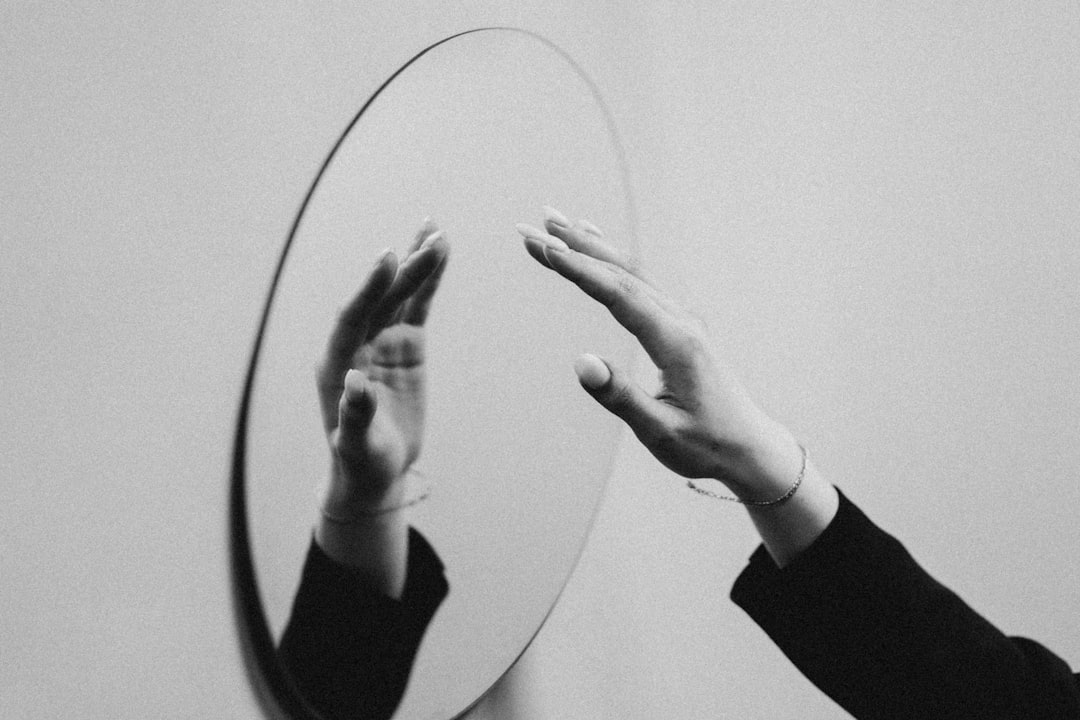Self-reflection is a crucial part of personal growth and development. It’s a beautiful way to get to know yourself, identify patterns, and make changes to improve your life. It’s easy to get caught up in the busy-ness of day-to-day life and forget to take a step back and reflect on where you are, where you’ve been, and where you want to go. Reflection gives you the space to slow down, take stock, and learn from your experiences. It can help you develop greater self-awareness, build resilience, and lead a more purposeful life.
Through self-reflection, you can explore your passions, values, strengths, and weaknesses. You can gain insight into what makes you tick, what motivates you, and what holds you back. Reflection provides you with an opportunity to look at all aspects of your life, including your relationships, career, health, and personal growth. It helps you become more intentional about your choices and make decisions that align with your goals and values.
One of the most significant benefits of self-reflection is that it enables you to see patterns in your behavior and thinking. You can observe what’s working for you and what’s not. You can identify recurring problems, limiting beliefs, and negative self-talk. It empowers you to take responsibility for your life and create positive change.
In today’s fast-paced world, it’s so easy to get caught up in the noise and chaos around us. Self-reflection allows you to tune out the distractions and center yourself. You can focus on the present moment and your own thoughts and feelings. Mindfulness practices like meditation, deep breathing, and yoga are great ways to practice self-reflection.
Ultimately, self-reflection is a powerful tool for personal growth and self-discovery. It helps you gain clarity, build resilience, and create a life that feels meaningful and fulfilling. Be kind to yourself and take the time to reflect on your journey. You may be surprised at the insights and wisdom that come from this practice.
Looking Back: The Art of Reviewing Your Progress
Self-reflection goes beyond just looking inward and examining your thoughts and emotions; it also involves taking a step back and examining your progress. Looking back on your past experiences, failures, and successes can be an incredibly valuable exercise in personal development.
For one, reviewing your progress allows you to identify areas where you’ve grown and improved. This can help boost your confidence and encourage further growth in those areas. At the same time, reflecting on missteps and failures can help you pinpoint areas where you may need to put in more effort or adjust your strategy.
Through reviewing the past, you may even discover patterns or behaviors that are holding you back or contributing to your struggles. This can help you make changes to your thoughts or actions and ultimately move forward in a more positive direction.
The art of reviewing your progress requires honesty and vulnerability. It can be uncomfortable to confront past mistakes and failures, but it’s essential for growth. However, it’s also important to approach this exercise with compassion for yourself. Remember, acknowledging areas where you want to improve is not the same as beating yourself up or dwelling on past shortcomings.
Overall, taking the time to look back and examine your progress can provide insight, clarity, and motivation for continued growth. So, take a moment to reflect on past experiences and see how far you’ve come. It may just inspire you to keep pushing forward.
The art of reviewing your progress requires honesty and vulnerability.
Mind the Moment: The Benefits of Present-Moment Awareness
Being present in the moment can be a challenge in our fast-paced world. It’s easy to get swept away in daily distractions and lose sight of the present moment. However, practicing present-moment awareness can have numerous benefits for our personal growth and overall well-being.
When we are present in the moment, we are able to fully engage with our surroundings and experiences. We are no longer held back by worries or concerns about the past or future. This allows us to approach each situation with a fresh perspective and open mind.
Additionally, practicing present-moment awareness can help to increase our focus and attention span. This allows us to be more productive and efficient in completing tasks. It also enables us to be more mindful of our thoughts, emotions, and behaviors, and to make conscious choices about how we respond to various situations.
Another benefit of present-moment awareness is its ability to promote a sense of calm and relaxation. When we are fully engaged in the present moment, we are better able to appreciate the beauty around us and find joy in the simple things in life.
To cultivate present-moment awareness, there are several techniques you can try. One popular method is mindfulness meditation, which involves focusing on your breath and observing your thoughts without judgment. You can also practice being present in your daily activities by paying attention to your senses and fully engaging in whatever you are doing.
Incorporating present-moment awareness into your life can take time and practice, but the benefits are well worth the effort. By being fully engaged in the present moment, you can enhance your personal growth, increase your productivity, and find more joy in everyday life.
Additionally, practicing present-moment awareness can help to increase our focus and attention span.
Embracing Challenges: Finding Growth in Your Struggles
Life is full of challenges. From minor setbacks to major disasters, we are all bound to face difficulties at some point in our lives. However, it is in these moments of struggle that we have the opportunity to grow and learn the most about ourselves.
It can be tempting to shy away from challenges and avoid discomfort, but this can lead to stagnation and a lack of personal development. By embracing challenges and facing them head-on, we can develop resilience, confidence, and strength.
When faced with a challenge, it is important to approach it with a growth mindset. Instead of seeing the challenge as a roadblock or failure, view it as an opportunity for growth and learning. Ask yourself, “What can I learn from this situation?” “How can I use this experience to become better?”
Remember, challenges are not meant to defeat you, but to strengthen you. It is through facing and overcoming challenges that we build character and develop a deeper understanding of ourselves and our abilities.
One way to embrace challenges is through goal-setting. By setting challenging goals for ourselves, we can push ourselves out of our comfort zones and into new levels of growth and development. Whether it is a personal or professional goal, the act of working towards a challenging goal can provide a sense of purpose and direction, and help us cultivate the skills and attributes necessary for success.
It is also important to remember that we do not have to face challenges alone. Seek support from friends, family, or a coach or mentor. Sometimes just having someone to talk to and provide encouragement can make all the difference when facing a difficult situation.
So the next time you are faced with a challenge, take a deep breath, approach it with a growth mindset, and remember that this is an opportunity for growth and learning.
It is also important to remember that we do not have to face challenges alone.
Finding Inspiration: The Power of Gratitude and Appreciation
When we’re in the midst of the daily grind, it’s all too easy to take the good things in our lives for granted. We focus on the to-do list, the deadlines, the problems that need solving. It’s easy to lose sight of the things that make life worth living. That’s why it’s so important to practice gratitude and appreciation on a regular basis.
Taking time to reflect on the good things in our lives can have a powerful impact on our mental and emotional well-being. Studies have shown that people who practice gratitude regularly experience lower levels of stress and depression, and report feeling happier and more content with their lives. Plus, practicing gratitude can also improve our relationships with others, as we become more focused on the positive aspects of our interactions.
So, how can you incorporate gratitude and appreciation into your daily routine? It can be as simple as taking a few minutes each day to reflect on the good things in your life. Maybe it’s the fact that you have a roof over your head, or a job that you enjoy, or a loving partner or family. Whatever it is, take a moment to acknowledge it and feel grateful for it.
Another way to practice gratitude is to express it to others. Take a moment to thank someone for something they did for you, or to let them know how much you appreciate them. Not only will this make the other person feel good, but it will also reinforce your own sense of gratitude.
In addition to gratitude, appreciation is another powerful tool for finding inspiration in our lives. Appreciation is all about recognizing the beauty and value in the world around us. It’s about taking the time to really see and experience the things that bring us joy and pleasure.
Appreciation can take many forms. Maybe it’s taking a walk in nature and marveling at the beauty of the natural world. Maybe it’s appreciating the art and creativity of others, whether it’s a painting, a song, or a film. Maybe it’s simply taking time to savor the taste of a delicious meal, or to feel the warmth of the sun on your face.
Whatever form it takes, appreciation is a powerful tool for finding inspiration and meaning in our lives. By focusing on the positive aspects of our experiences, we can develop a more positive outlook on life, and find renewed energy and motivation for pursuing our goals and dreams.
So, as you continue on your journey of self-reflection and personal growth, remember the power of gratitude and appreciation. Take time to reflect on the good things in your life, and to appreciate the beauty and value in the world around you. With gratitude and appreciation as your guides, you’ll be well on your way to finding the inspiration and motivation you need to keep moving forward.
Maybe it’s taking a walk in nature and marveling at the beauty of the natural world.
Moving Forward: The Value of Setting Intentions and Goals
So far, we have covered the importance of looking back, being present in the moment, embracing challenges, and finding inspiration. But what about the future? What about the goals we want to achieve and the intentions we set for ourselves?
Setting intentions and goals can be a powerful tool for personal growth. They allow us to have a clear direction and purpose in life, giving us something to work towards. When we set intentions and goals, we are creating a roadmap to guide us in our journey.
But setting intentions and goals is not enough. We must be committed to taking action towards achieving them. It’s important to break down our goals into smaller, more manageable steps to ensure that we are making progress towards our ultimate vision.
It’s also important to be flexible with our intentions and goals. Life is unpredictable, and sometimes we need to adjust our plans accordingly. Being adaptable and open-minded allows us to pivot when necessary while still staying true to our core values and beliefs.
Overall, setting intentions and goals can be a valuable tool for personal growth. By having a clear direction and taking action towards achieving our vision, we can make incremental progress towards becoming the best version of ourselves.
We must be committed to taking action towards achieving them.
Conclusion: The Continuous Journey of Self Reflection and Personal Growth
Congratulations! You have made it to the end of our journey through the importance of self-reflection, present-moment awareness, gratitude, and goal setting. You may have noticed how each of these topics is interconnected and essential to personal growth.
Self-reflection is an ongoing process. We continuously reshape our understanding of ourselves, our experiences, and our environment by reflecting on our past and present actions. Mindful present-moment awareness allows us to be fully engaged in the now, enabling us to make more conscious choices.
Embracing challenges and difficulties, rather than avoiding them, is a valuable aspect of personal growth. With every challenge comes new opportunities for learning and improvement. And, indeed, failing can be an extremely powerful teacher in itself.
Furthermore, the power of gratitude and appreciation has the ability to shift our mindset from one of deficit to one of abundance. Acknowledging the positive aspects of our lives allows us to develop a more optimistic, resilient approach to face challenges.
Finally, setting intentions and goals can help us create tangible steps we can take towards personal growth. Not only does goal-setting allow us to break down large aspirations into more manageable actions, but it can also provide a sense of accountability and motivation.
Remember, self-reflection is a continuous journey. As we navigate the different aspects of our lives, we will encounter new challenges, opportunities, and experiences that require us to reflect and adapt. But no matter what steps we take, we can always choose to be more mindful, appreciative, and goal-oriented in our approach.
In conclusion, I hope this discussion on the importance of self-reflection has inspired you to take a closer look at your own life and take steps towards personal growth, one day at a time. Remember to be kind to yourself, to acknowledge and celebrate your successes, and to learn from your mistakes. We are all on this journey together!





